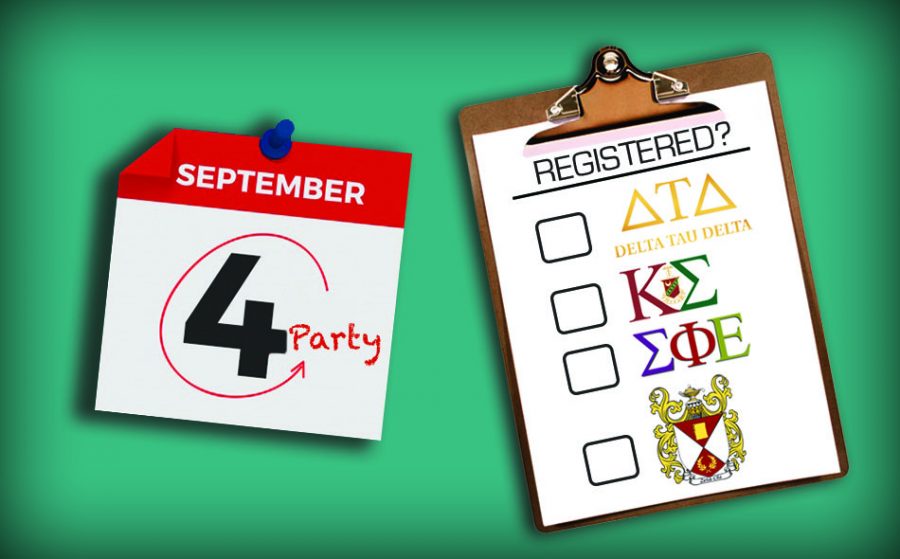Baker cracks down on party scene
Party registration has been a policy implemented for Baker University’s fraternity houses for years. However, with the events of modern college campuses nationwide, as well as the emphasis on safety and liability of fraternity life, the administration has come together in agreement on the importance of practicing the policies and moderating social life to attain the utmost safe and secure setting for Baker students.
Josh Doak, assistant director of student life, said the registration process has been in place and remains mostly the same as last year, with the expectation that a representative of the fraternity will follow through with the required process.
The request form is online and the president, risk management chair and social chair must sign off on it. One of these members fills out the social event form and sends it to the Interfraternity Council (IFC) and Doak three business days prior to the event.
However, unlike the sign-in sheets used previously, fraternities are now required to have a list of predetermined guests and send it to Doak before the event.
Dean of Students Cassy Bailey said this policy should have been set in place years ago.
“It is for the safety of the students and the risk management of the chapters,” Bailey said.
By analyzing past dangerous, and in some cases life-threatening, situations at parties, fraternities and sororities nationwide have adopted rules to limit liability and to assure the well-being of the students attending.
“Fraternity life is a highly risky group and hard to ensure,” Doak said.
The Fraternal Information and Programming Group (FIPG) was created in recognition of that very statement. It is meant to protect the sanctity and culture of brotherhood by limiting the chance of an established chapter to be shut down in response to an easily avoided tragedy such as a sexual assault or death by alcohol poisoning. The group sets standards and policies for all national fraternal organizations, which have been adopted by Baker.
Bailey said the policies set out are in the best interest of the fraternity men as well as the students attending parties. The rules include precautions such as providing food at all social events as well as non-alcoholic beverages, marking all underage guests with an X and requiring all pre-listed guests to sign in and out.
Social events are also required to designate members as entrance security, sober monitors and if the chapter allows, designated drivers.
“I have seen no social events get denied, however, we do approve them under certain circumstances,” Doak said.
Daniel Rivera, IFC vice president of judicial affairs, said he is glad to see the requirements set out for social events.
“There is so much liability that happens within a party that we have to have those requirements,” Rivera said.
A big focal point of Doak’s is the fact that open parties do not exist and should not occur on fraternity grounds, not only at Baker but also nationwide under FIPG policy.
“All national organizations have banned open parties,” Doak said. Therefore, anyone who shows up to a chapter’s house should be a guest registered under the guest list.
Doak said the Baker mindset should be that every party is a date party. However, this creates an issue for non-Greek students.
Senior Nathan Guscott is one of the students worried about the limitations of campus involvement regarding party policies.
“I see from the responsibility side of it, however, for the college aspect of partying and everyone being invited it’s hard to organize with a situation like this,” Guscott said.
Doak is well aware of the worries surrounding the reinforcement of this policy, but reminds students these rules are set in place for them.
“As a young adult, you don’t think about the structure, you’re focused on the college experience,” Doak said.
Bailey also spoke of the university’s involvement with off-campus weekend activities.
“I get this part of college life, I’m not trying to squash that,” Bailey said. “I’m just asking people to be very thoughtful with the decisions they make.”
Doak has also worked to educate on the Kansas alcohol Amnesty Policy. This policy states that law enforcement and intervention is needed in response to an overly intoxicated student, and no person involved will be punished, even if underage or under the influence.
“We care more about the safety of the individual,” Doak said. “I would rather stop a party to save a life than assume everything is okay and lose a life.”







